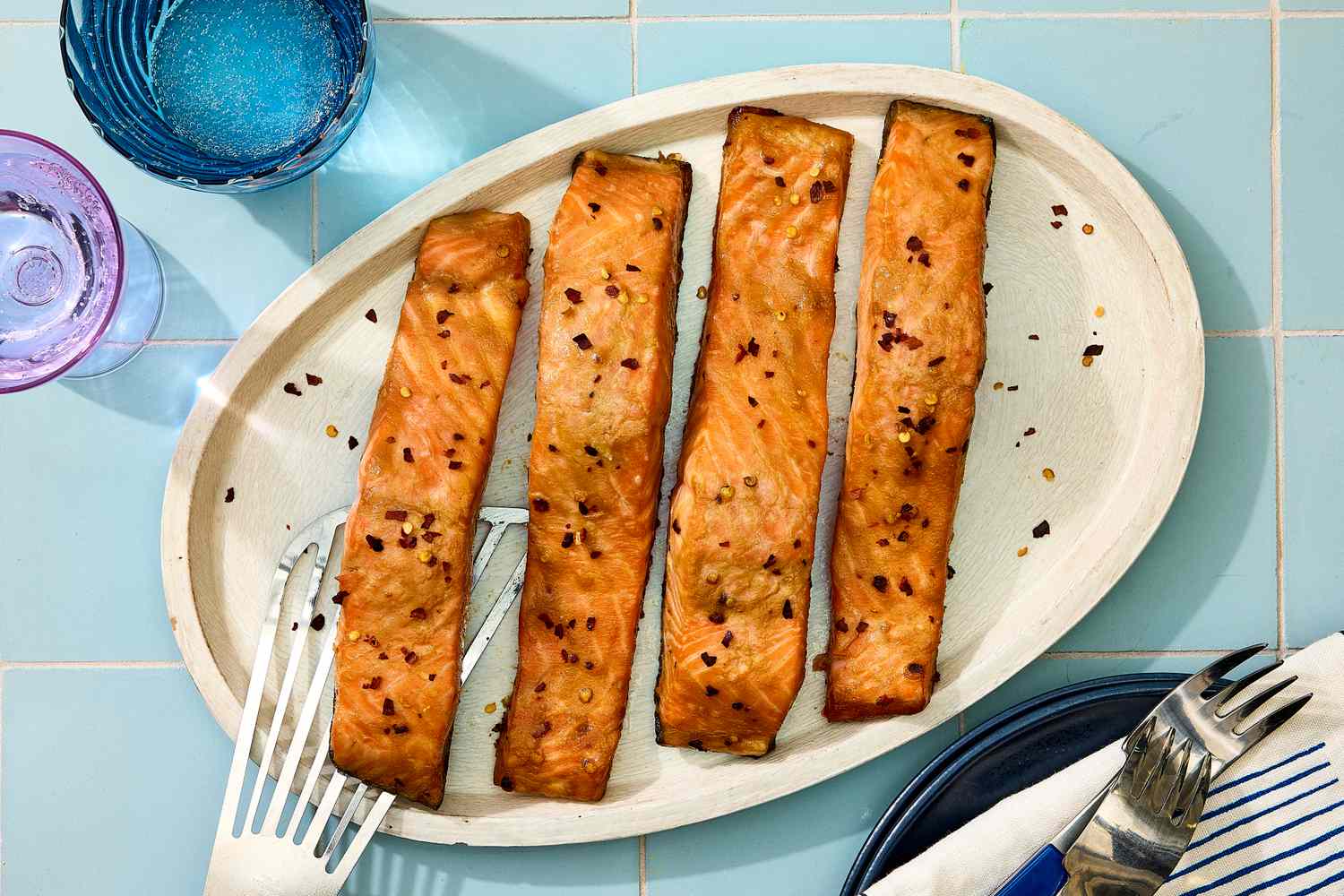Blog
The Best Foods to Eat to Fight Inflammation

- Persistent inflammation can damage cells and lead to serious diseases like heart disease, diabetes and cancer.
- Incorporating anti-inflammatory foods such as tart cherries, avocados, fatty fish and dark leafy greens into your diet can help reduce inflammation.
- Regular exercise, adequate sleep and stress management are other helpful strategies to lower inflammation.
Inflammation is a natural response by the body to defend against foreign invaders and aid in healing injuries. While this process is essential, chronic inflammation can be linked to significant problems by damaging body cells and impairing their ability to function properly. “Chronic inflammation can interrupt and damage body cells. When body cells don’t function properly due to a repeated stressor, they are unable to protect against disease or can initiate changes in the body which can contribute to the development of a disease,” explains Andrea Conner, M.P.H., RDN. This persistent inflammation has been linked to serious diseases like cancer, heart disease, arthritis, and diabetes.
Fortunately, adopting a healthy diet and lifestyle can help combat chronic inflammation and lower disease risk. “Lowering inflammation in the body means eating a plant-forward diet and avoiding highly processed foods that contain trans fats or a lot of added sugar,” says Pamela Fergusson, RD, Ph.D. Foods rich in antioxidants, like those featured in the Mediterranean diet, have been shown to effectively reduce inflammation. Beyond diet, maintaining seven to eight hours of sleep per night, staying active and managing stress are also crucial in fighting inflammation and improving overall health.
Add more of the following healthy inflammation-fighting foods to your daily diet to see the benefits.
1. Tart Cherries
Tart cherries pack a wallop of antioxidants that help temper inflammation, including anthocyanins (an antioxidant found in red and purple fruits and vegetables) and vitamin C (well-known for its immune-supporting properties). Data shows that tart cherries contain beneficial compounds called polyphenols, which have antioxidant and anti-inflammatory effects. These compounds may help by targeting the processes in the body that cause or worsen inflammation. Research shows that tart cherries could help lower markers of inflammation and reduce the risk of chronic diseases. The active ingredients in tart cherries, such as cyanidins, quercetin and melatonin, are thought to play a key role in this.This may be attributed to the impact of the active compounds in tart cherries on inflammatory pathways, including NF-κB and mitogen-activated protein kinase.
Incorporate more cherries into your diet with smoothies, as a yogurt or oatmeal topper, in sorbet or simply on their own for an easy, naturally sweet snack.
2. Avocados
Packed with healthy monounsaturated fatty acids that help to keep our hearts happy, avocados are also an excellent source of fiber. “One of the simplest things you can do to eat in an anti-inflammatory way and prevent disease is to eat a diet high in fiber,” says Fergusson. For one, fiber makes maintaining a healthy weight easier, which in turn helps ward off weight-related inflammation. Additionally, fiber is what keeps our gut microbiome happy and healthy, which we now know plays a critical role in chronic disease development.
3. Beets
Just like cherries contain anthocyanins, beets contain different phytochemicals—called betalains—that act similarly in the body to fight off inflammation. They’re also a heartier vegetable that can be store for longer without going bad, which is an added bonus if you’re trying to reduce food waste. Whether you add beets to your juicer or roast them as a salad topper, you’ll get a healthy dose of helpful nutrients.
4. Fatty Fish (or Flaxseed)
Eating salmon or other fatty fish, like sardines and mackerel, at least twice a week delivers an impressive amount of healthy omega-3 fatty acids, which have been found to “turn off” pro-inflammatory genes in your body and increase cells’ ability to scrub themselves of harmful components. Not feeling fish? Eat 1 to 2 tablespoons of chia seeds, ground flaxseed or walnuts to get plant-based omega-3 fats.
5. Nuts
From almonds to cashews, pistachios and walnuts, you can choose your favorite (or mix it up) when designing an anti-inflammatory diet. Eating nuts, such as almonds and walnuts, may help lower inflammation, while Brazil nuts might reduce oxidative stress because of their antioxidant properties. Although it’s clear nuts are good for health, researchers are still exploring exactly how different types of nuts and varying portions influence inflammation and overall health. 7 Add nuts into your pesto, sprinkle them over a salad or turn them into energy bites—or just enjoy them on their own.
6. Dark Leafy Greens
A smart goal to up your nutrition game: a salad a day. Aim for dark leafy greens, like kale, spinach and collards, all of which pack nutrients, most notably lutein, folate and vitamin K, that slow the simmer of inflammation. Think you have to load up on salads and green juice every day? While we will never say “no” to eating more veggies, some data suggests that eating just one serving per day of greens may be associated with slower cognitive decline in aging adults.
One specific compound found in certain greens, like spinach, is thykamine. This compound has shown promising anti-inflammatory and antioxidant properties in scientific studies.
7. Spices
There’s been a lot of talk about specifically loading up on turmeric. However, research isn’t conclusive when it comes to the benefits of eating it as a spice (rather than in larger amounts in proprietary supplements). Instead, focus on including a range of dried herbs and spices in your diet rather than relying on the power of one to do all the work. Eating herbs and spices regularly may play a role in preventing cancer, according to some data.
Along with having turmeric as part of your spice collection, Conner also recommends cloves, peppermint, oregano, ginger, parsley, cinnamon, pepper and garlic. “Find opportunities to add spices and get into the habit of using them daily,” she says. You can add them to meals naturally by stirring a teaspoon of cinnamon into your oatmeal, topping cherry tomatoes with olive oil and oregano, and adding turmeric to water when cooking quinoa.
Anti-Inflammatory Recipes to Try
Our Expert Take
Chronic inflammation is a serious health concern, but the good news is that taking proactive steps through diet and lifestyle may make a significant difference. By incorporating nutrient-rich, anti-inflammatory foods such as tart cherries, avocados, fatty fish, nuts and dark leafy greens into your meals, you can help your body combat inflammation naturally. These foods are not only delicious but also loaded with nutrients that work together to reduce inflammation, support your immune system, and promote overall well-being. A balanced approach to eating, along with staying active, prioritizing sleep, and managing stress, is key for combatting the harmful effects of chronic inflammation.
Ultimately, small, consistent changes hold the power to protect your health and enhance your quality of life. Whether it’s adding beets to your salad, seasoning your dishes with inflammation-fighting spices, or swapping out fried snacks for nuts, every choice counts. Keep in mind that combating inflammation is not about perfection but about progress—finding ways to nourish your body that align with your lifestyle. Your body will thank you for the care and intention you invest in its well-being.












